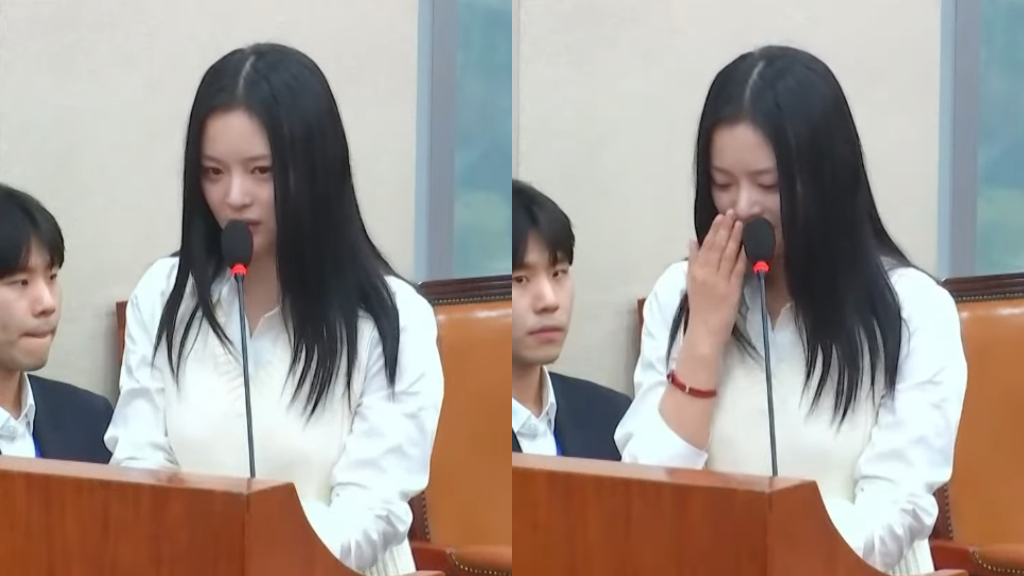In a poignant testimony that underscored the struggles of young artists in the entertainment industry, Hanni, a member of the K-pop group NewJeans, appeared at a National Assembly hearing in South Korea focused on workplace harassment. The 20-year-old Vietnamese Australian idol broke down as she shared her experiences of bullying and systemic discrimination while under the management of Hybe Labels. During her address to the Environment and Labor Committee, Hanni recounted a troubling incident where a manager from a Hybe subsidiary allegedly instructed colleagues to “ignore her,” an experience she had initially brought to light during a YouTube livestream on September 11.
The allegations, which included claims of a toxic workplace environment, were met with denials from the accused manager associated with Belift Lab, the subsidiary involved. In a reflection of potential institutional shortcomings, Ador CEO Kim Ju-young, who recently took over the role of NewJeans’ producer from Min Hee-jin, expressed regret about not having done more to address Hanni’s concerns. This acknowledgment hints at larger systemic issues within the organization that may need urgent attention if they are to protect the mental and emotional well-being of their artists.
Hanni’s remarks were filled with frustration as she highlighted the challenges faced by her and her group members while working within Hybe. She emphasized the persistent negativity towards NewJeans from some employees, alleging that internal communication platforms were rife with criticism. Such treatment not only impacts the morale of the artists but also raises questions about how management fosters a healthy workplace culture. Hanni’s emotional testimony is reflective of a deeper malaise within the industry that goes beyond individual actions, suggesting a culture that may normalize disparagement and disrespect.
The call for respect and workplace integrity resonated strongly in Hanni’s commentary. She articulated the fundamental need for mutual respect as a vital step towards eliminating bullying and harassment in the workplace. Her statement underscored a desire for accountability, which should not just be a reaction to individual complaints but a proactive approach to nurturing a respectful working environment for all. As the Ministry of Employment and Labor undertakes an investigation into her claims, her situation exemplifies a pressing need for reform in how artists, particularly young women, are treated in the K-pop industry.
In the wake of Hanni’s revelations, the conversation surrounding workplace culture in South Korea’s entertainment sector is expected to gain momentum. The testimonies like hers shine a light on the often-hidden pressures and difficulties faced by idols who are thrust into the limelight. As their experiences garner public attention, there is hope for tangible changes that can pave the way for a healthier industry. Discussions regarding policies, oversight, and protective measures for artists may arise, highlighting the collective responsibility to ensure a safer work environment.
Ultimately, Hanni’s experience is not just an isolated case but part of a broader narrative concerning the welfare of individuals in the K-pop industry. By bravely sharing her story, she has sparked important dialogues about workplace standards and the treatment of artists who not only entertain but also navigate the complexities of fame at a young age. Her commitment to advocating for respect serves as a reminder that everyone in the workplace deserves to operate free from the burden of bullying and discrimination, paving the way for future generations of artists to thrive in a more supportive environment.

